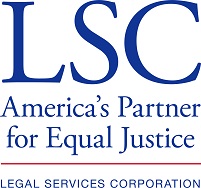- Home
- Search
Filter your results
Results 1 - 10 of 78. To narrow results enter search keywords or select filters.
Are you being evicted? Did your landlord say you must leave? If so, there are things you should know. Landlords are not above the law. In order to evict someone, they must follow the law.
Below are some of the most often asked questions about evictions.
What is an Eviction?
An eviction is a court process a landlord uses to remove a tenant renting a room, apartment, house, or mobile home.
What can the landlord evict me for?
You can be evicted for the following things:
Service and companion animals are more than pets. They are working animals that help people with their disabilities. Service animals do tasks such as guide people who are blind. Companion animals offer emotional support to people who suffer from anxiety and depression. The Fair Housing Act is a federal law that recognizes the importance of service and companion animals. This law does two things:
How does an eviction affect me after I move?
Once an eviction action is filed, it is a public record that can be expunged under limited circumstances (for more information on eviction expungements, please go to our expungement page). Landlords often do background checks when someone fills out an application to be a tenant. Some landlords will not rent to people against whom an eviction action has been filed, even when the defendant wins or the case is dropped.
How is an eviction case started?
Before a landlord can start an eviction case in court, the landlord must first give you a written notice. Even though this notice may state it is a notice of eviction, it is not a court order. This is just the first step the landlord must take before evicting you. This notice may give you time to fix the problems with your landlord or move out before the eviction case is filed in court.
How do I know if the landlord filed an eviction case against me?
If your landlord filed an eviction case against you, you will be served with a Summons and Complaint. The Summons will state the amount of time you have to respond to the eviction. You MUST read the Summons to know how much time you have to file a response to the Complaint. The Complaint lists the reason why the landlord wants to evict you.
Get the facts about 12 common legal mistakes. Know the law so you don't make these mistakes.
Fact #1: Oral contracts are still contracts
A contract does not need to be in writing to be enforceable under the law. If you promise to buy something and someone else promises to sell it to you, you may have just made a contract. Your promise is the same as signing your name to a contract. This includes renting apartments.
At Utah Legal Services, our mission is to provide high-quality civil legal aid at no cost to individuals who cannot afford representation or are facing disadvantages. We work tirelessly to ensure meaningful access to justice, promoting education, stability, safety, and protection for all.When you donate to us, you’re making a direct and meaningful impact on the lives of people in our community. Your support helps ensure that every Utahn—regardless of financial situation or personal circumstances—can access the legal representation they need to stand up for their rights.
Utah Legal Services (ULS) uses three different criteria to determine if they can help you. They are:
Citizenship/Legal residency
In general, you must be a citizen or legal permanent resident, unless your case is a result of domestic violence, such as in protective order cases.
Financial
You are not alone: 1 in 3 relationships involve Domestic Violence. Some general things you should learn about include:
If you need to see if we can help you with your legal problem, please Apply Online or call (801) 328-8891.
Utah Legal Services is a Statewide program. Your Legal Team MAY NOT be in the office closest to you. Please verify where any appointments are located.
- 1
- 2
- 3
- 4
- 5
- 6
- 7
- 8
- Next › Next page
- Last » Last page
Filter or search by topic, service type, language or location
Type
Topics
Tags
- eviction from a home (7)
- eviction (6)
- eviction procedure (6)
- evictions (6)
- Utah housing law (6)
- locked out (5)
- lockout (5)
- lockouts (5)
- Utah landlord-tenant (5)
- Utah landlord-tenant law (5)
- end of term (4)
- eviction notice (4)
- no cause (4)
- notice (4)
- personal property (4)
- expunge eviction housing (3)
- order of restitution (3)
- property retention (3)
- deposit disposition (2)
- Eviction myths (2)
- housing subsidy (2)
- low income housing tax credit (2)
- low income tax credit (2)
- possession bonds (2)
- return of personal property (2)
- return of property (2)
- security deposits (2)
- Utilities (2)
- abandonment (1)
- and Heating at home (1)
- criminal trespass (1)
- Deficient Conditions (1)
- disability (1)
- discrimination around housing (1)
- Energy (1)
- federal fair housing act (1)
- guest (1)
- long-term guest (1)
- long term guest (1)
- other discrimination (1)
- other federal fair housing act (1)
- Problems with living conditions (1)
- reasonable accommodation (1)
- reasonable accommodation defense (1)
- Rent Abatement (1)
- rent decrease (1)
- rent increase (1)
- renting or leasing a home (1)
- Repairs (1)
- seizure of property (1)
- Utah eviction myths (1)
- utilities shut off (1)
- victims of domestic violence (1)
- violence (1)
- Warranty of Habitability (1)
Filter or search by topic, service type, language or location
Type
Topics
Tags
- eviction from a home (7)
- eviction (6)
- eviction procedure (6)
- evictions (6)
- Utah housing law (6)
- locked out (5)
- lockout (5)
- lockouts (5)
- Utah landlord-tenant (5)
- Utah landlord-tenant law (5)
- end of term (4)
- eviction notice (4)
- no cause (4)
- notice (4)
- personal property (4)
- expunge eviction housing (3)
- order of restitution (3)
- property retention (3)
- deposit disposition (2)
- Eviction myths (2)
- housing subsidy (2)
- low income housing tax credit (2)
- low income tax credit (2)
- possession bonds (2)
- return of personal property (2)
- return of property (2)
- security deposits (2)
- Utilities (2)
- abandonment (1)
- and Heating at home (1)
- criminal trespass (1)
- Deficient Conditions (1)
- disability (1)
- discrimination around housing (1)
- Energy (1)
- federal fair housing act (1)
- guest (1)
- long-term guest (1)
- long term guest (1)
- other discrimination (1)
- other federal fair housing act (1)
- Problems with living conditions (1)
- reasonable accommodation (1)
- reasonable accommodation defense (1)
- Rent Abatement (1)
- rent decrease (1)
- rent increase (1)
- renting or leasing a home (1)
- Repairs (1)
- seizure of property (1)
- Utah eviction myths (1)
- utilities shut off (1)
- victims of domestic violence (1)
- violence (1)
- Warranty of Habitability (1)
Results 1 - 10 of 78. To narrow results enter search keywords or select filters.
Are you being evicted? Did your landlord say you must leave? If so, there are things you should know. Landlords are not above the law. In order to evict someone, they must follow the law.
Below are some of the most often asked questions about evictions.
What is an Eviction?
An eviction is a court process a landlord uses to remove a tenant renting a room, apartment, house, or mobile home.
What can the landlord evict me for?
You can be evicted for the following things:
Service and companion animals are more than pets. They are working animals that help people with their disabilities. Service animals do tasks such as guide people who are blind. Companion animals offer emotional support to people who suffer from anxiety and depression. The Fair Housing Act is a federal law that recognizes the importance of service and companion animals. This law does two things:
How does an eviction affect me after I move?
Once an eviction action is filed, it is a public record that can be expunged under limited circumstances (for more information on eviction expungements, please go to our expungement page). Landlords often do background checks when someone fills out an application to be a tenant. Some landlords will not rent to people against whom an eviction action has been filed, even when the defendant wins or the case is dropped.
How is an eviction case started?
Before a landlord can start an eviction case in court, the landlord must first give you a written notice. Even though this notice may state it is a notice of eviction, it is not a court order. This is just the first step the landlord must take before evicting you. This notice may give you time to fix the problems with your landlord or move out before the eviction case is filed in court.
How do I know if the landlord filed an eviction case against me?
If your landlord filed an eviction case against you, you will be served with a Summons and Complaint. The Summons will state the amount of time you have to respond to the eviction. You MUST read the Summons to know how much time you have to file a response to the Complaint. The Complaint lists the reason why the landlord wants to evict you.
Get the facts about 12 common legal mistakes. Know the law so you don't make these mistakes.
Fact #1: Oral contracts are still contracts
A contract does not need to be in writing to be enforceable under the law. If you promise to buy something and someone else promises to sell it to you, you may have just made a contract. Your promise is the same as signing your name to a contract. This includes renting apartments.
At Utah Legal Services, our mission is to provide high-quality civil legal aid at no cost to individuals who cannot afford representation or are facing disadvantages. We work tirelessly to ensure meaningful access to justice, promoting education, stability, safety, and protection for all.When you donate to us, you’re making a direct and meaningful impact on the lives of people in our community. Your support helps ensure that every Utahn—regardless of financial situation or personal circumstances—can access the legal representation they need to stand up for their rights.
Utah Legal Services (ULS) uses three different criteria to determine if they can help you. They are:
Citizenship/Legal residency
In general, you must be a citizen or legal permanent resident, unless your case is a result of domestic violence, such as in protective order cases.
Financial
You are not alone: 1 in 3 relationships involve Domestic Violence. Some general things you should learn about include:
If you need to see if we can help you with your legal problem, please Apply Online or call (801) 328-8891.
Utah Legal Services is a Statewide program. Your Legal Team MAY NOT be in the office closest to you. Please verify where any appointments are located.
- 1
- 2
- 3
- 4
- 5
- 6
- 7
- 8
- Next › Next page
- Last » Last page
Our Partners
Utah Legal Services is a Legal Services Corporation (LSC) grantee. We are required to notify donors that our funds may not be used in any manner inconsistent with the Legal Services Corporation Act or Section 504 of Public Law 104-134.

